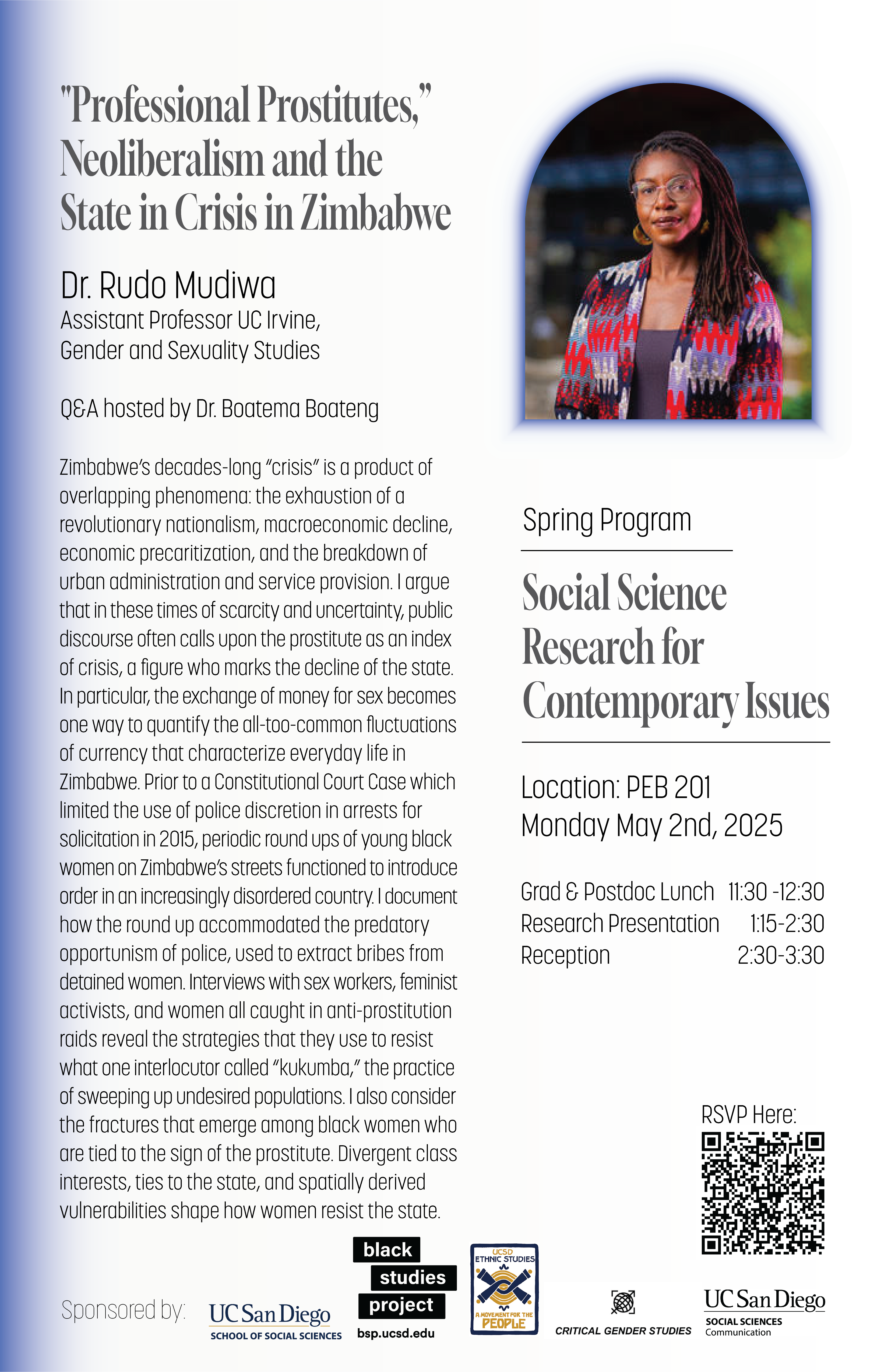Social Science Research for Contemporary Issues with Dr. Rudo Mudiwa
This three part program will feature a research presentation by Assistant Professor Rudo Mudiwa (UC Irvine, Gender & Sexuality Studies), "Professional Prostitutes" Neoliberalism and the State in Crisis in Zimbabwe. Professor Mudiwa will explore with us their argument "that in these times of scarcity and uncertainty, public discourse often calls upon the prostitute as an index of crisis, a figure who marks the decline of the state." Read full research abstract below.
Grad & Postdoc Lunch, 11:30AM-12:30PM will provide a forum for graduate students to engage with the speakers on the transition between grad and early career appointments. To inform food orders please RSVP at bit.ly/chatwithrudo by Monday, April 28.
Research Presentation, 1:15PM-2:30PM by Dr. Rudo Mudiwa (UC Irvine), question and answer hosted by Dr. Boatema Boateng (UCSD, Communication)
Reception, 2:30PM-3:30PM
Friday, May 2, 2025 | 11:30 AM - 3:30 PM (PST)
Social Sciences Public Engagement Building (PEB 201) (map)

Research Presentation Abstract
Zimbabwe's decades long "crisis" is a product of overlapping phenomena: the exhaustion of a revolutionary nationalism, macroeconomic decline, economic precarization, and the breakdown of urban administration and service provision. I argue that in these times of scarcity and uncertainty, public discourse often calls upon the prostitute as an index of crisis, a figure who marks the decline of the state. In particular, the exchange of money for sex becomes one way to quantify the all-too-common fluctuations of currency that characterize everyday life in Zimbabwe. Prior to a Constitutional Court Case which limited the use of police discretion in arrests for solicitation in 2015, periodic round ups of young black women on Zimbabwe's streets functioned to introduce order in an increasingly disordered country. I document how the round up accommodated the predatory opportunism of police, used to extract bribes from detained women. Interviews with sex workers, feminist activists, and women all caught in anti-prostitution raids reveal the strategies that they use to resist what one interlocutor called "kukumba," the practice of sweeping up undesired populations. I also consider the fractures that emerge among black women who are tied to the sign of the prostitute. Divergent class interests, ties to the state, and spatially derived vulnerabilities shape how women resist the state.
